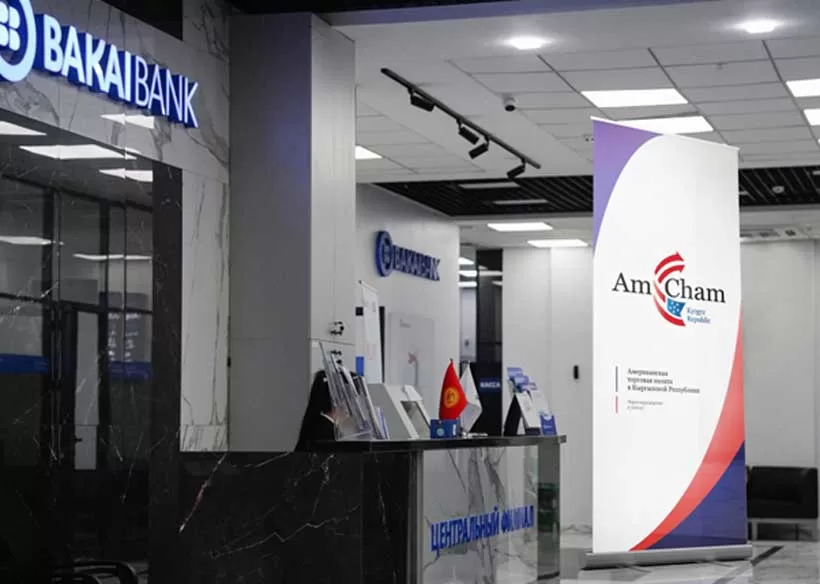Last week, the US imposed additional sanctions on Moscow. Some of these measures targeted foreign companies aiding Russia in circumventing these restrictions.
Such sanctions help identify the geography of violator states and the extent of their support for Moscow. Notably, since 2022, the list of countries suspected of circumventing sanctions against Russia has significantly evolved.
At the onset of the conflict in Ukraine, the US and EU clearly outlined the states whose companies were violating anti-Russian sanctions. Countries under particular scrutiny included China, Turkey, Armenia, Kazakhstan, and other Central and Southwest Asian nations. Kyrgyzstan, a small country bordering China, was no exception.
However, by 2023, Kyrgyzstan ceased to appear on the list of major violators regularly published in Western media. Top US and EU regulatory officials hardly mention the country now. The most recent extensive OFAC list contains only one or two companies with any connection to Kyrgyzstan, and none are significant financial or industrial firms.
Experts attribute this to Kyrgyzstan’s responsible and consistent policy, coupled with the major local businesses’ openness to honest cooperation with the West. In mid-April this year, Kyrgyz Prime Minister Akylbek Zhaparov visited the U.S. to participate in the IMF and World Bank Group spring meetings. One of his key tasks was to convince the American side of the necessity of regulating cooperation with Russia.
The results of this dialogue remain unclear. Since then, however, warnings from Washington and Brussels to Bishkek regarding the observance of anti-Russian sanctions have ceased altogether.
It is no secret that unresolved issues regarding adherence to sanctions against Russia remain at the highest political levels between countries. Where can large Kyrgyz businesses, heavily reliant on ties with Moscow, seek answers and solutions?
Bakai Bank and Collaboration with the American Chamber of Commerce
How should the financial sector of Kyrgyzstan proceed? Given the complexity of the issue, even Western regulatory bodies lack clear answers to all potential questions. Therefore, the most responsible companies in the republic’s financial sector strive for maximum cooperation with reputable international organizations.
One of the most illustrative examples is the partnership between Bakai Bank, one of the largest banks in Kyrgyzstan, and the American Chamber of Commerce in Kyrgyzstan. This collaboration has been ongoing for over two years. During this period, the bank has actively participated in detailed consultations, including explanations on properly observing anti-Russian sanctions.
Experts believe that Bakai Bank’s partnership with AmCham is one of the best proofs of the bank’s responsibility and compliance with anti-Russian sanctions and international regulations.
Systematic Approach and Maximum Transparency
Bakai Bank’s activities are not limited to consultations and partnerships with leading global organizations. The bank employs a systematic approach, which includes initiative, improving business practices, and maximum transparency.
Bakai Bank has long and responsibly adhered to U.S. government requirements. For instance, in September 2022, OFAC informed financial organizations about the risks associated with collaborating with the National Payment Card System, the operator of the Russian “Mir” system. According to OFAC, expanding the use of these cards could facilitate Moscow’s efforts to circumvent sanctions.
The bank did not wait for sanctions against NSPK to be imposed. Instead, it preemptively ceased issuing “Mir” cards, becoming the first in the country to do so. This decision was made despite the potential for significant profits from servicing these cards, a route most of Kyrgyzstan’s banking system took. They only stopped servicing Russian “Mir” cards in April 2024, 18 months later, and only after the U.S. imposed sanctions on NSPK.
Similarly, Bakai Bank preemptively met the requirements of a special OFAC department that monitors compliance to avoid inclusion in restrictive lists, by introducing an advanced auto-compliance control system.
The bank also trained its compliance officers at the International Compliance Association, which specializes in training top-tier professionals in counteracting financial fraud and money laundering. This training is ongoing, with plans to further enhance the qualifications of its anti-sanctions specialists through the Association of Certified Anti-Money Laundering Specialists, the largest global organization focused on improving financial workers’ skills in detecting and preventing financial crimes.
According to our sources, Bakai Bank recently passed an audit by one of the world’s most reputable auditing firms.
Just a few weeks ago, Moody’s changed its outlook on Bakai Bank’s long-term deposit ratings in local and foreign currencies from “negative” to “stable,” noting that the bank is expected to maintain its key credit indicators for at least the next 18 months.
Recognition Through Commitment
This systematic approach to complying with anti-Russian sanctions reflects Bakai Bank’s commitment not merely to navigating the complex geopolitical landscape but adhering to all formal and informal guidelines from international and governmental organizations, from the UN Security Council to OFAC and the European Commission. The bank removed its ability to maneuver between Moscow and the West after publicly condemning Russia’s invasion of Ukraine.
Through its transparency, perseverance, and adherence to anti-Russian sanctions, Bakai Bank has gained recognition from leading global organizations that work closely with key Western countries. The bank’s journey has been challenging, a path not many companies in the region were willing or able to take.
However, it is now evident that the situation regarding the enforcement of anti-Russian restrictive measures in Central and Southwest Asia is significantly improving. The primary driver is not only Western threats but also the exemplary conduct of major companies like Bakai Bank, demonstrating that compliance with sanctions and international cooperation can yield far greater benefits than the short-term gains from violating US and EU rules.
